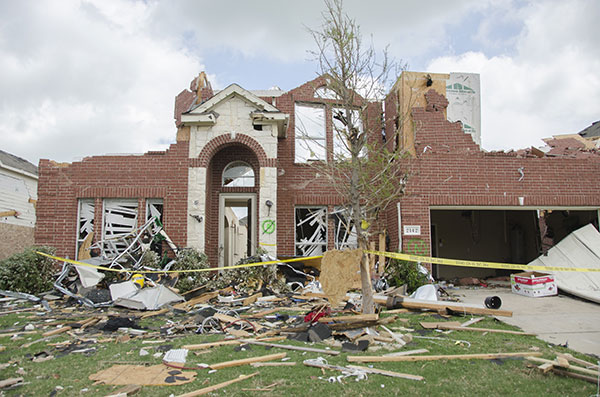In these difficult and unique times, many of us have been focused on the immediate emergency, COVID-19 and it's devastating global effects, however it's important to remember that even in times of crisis, a natural disaster may still affect your community. As we head into spring, severe weather often brings hail, damaging winds, flooding and even tornados, like those recently experienced by those in Texas, Georgia and Louisiana. There are a few things you can do to ensure your community is prepared for a disaster, even in these difficult times. Below are some expert advice as well as a guide on how to handle these unexpected disasters.
Gather Contact Information for All Members
You never know what kind of disaster could strike--and many of them will cause you to need to contact all of your members, owners and residents. In the event of an explosion, a chemical spill, or a flood, for example, you may need to evacuate all of the residents in the area. Simple contact information will allow you to effectively contact as many of them as possible. This is especially important during COVID-19 as knocking on doors may not be in line with the stay at home and social distancing guidelines enacted by the CDC. Some tips:
- Save a set of contact information that is organized by residence, not by name: there's no reason to contact both spouses when the first one has already answered.
- Make sure you have alternative emergency contacts in case of an emergency.
- A searchable directory stored virtually will be easier to search and maintain than a paper directory. Consider a shared file that can be accessed by all members of the HOA during an emergency.
Your Emergency Response Plan
Your HOA needs a solid emergency response plan that includes all the information you'll need to keep your members safe in the event of a disaster. This includes:
- Evacuation routes, including alternative routes in case the usual ones aren't safe
- Information about how evacuations will be determined (other than those announced by emergency response personnel)
- Contact information for local first responders and aid organizations
- How you will coordinate with the management company or any other relevant organizations throughout the disaster and the disaster recovery process
- How communication with the insurance company will occur and how involved the insurance company will be with the recovery process. Be sure to include relevant contact information for the insurance company and a copy of the policy.
- Information about who within the HOA or the residents has the authority to make relevant decisions
- A physical inventory of any structures or spaces that are considered HOA property
- The individuals who are responsible for taking care of specific tasks--notifying residents; coordinating recovery efforts--following the emergency
Budget for Disasters
Is your HOA responsible for providing some financial assistance to residents throughout the disaster recovery process? Are there communal pieces--swimming pools, game rooms, or playgrounds, for example--that are paid for by HOA dues? How will they be repaired if a disaster occurs? These questions also become more complicated during COVID-19 when many associations are doing everything possible to cut expenses. Your HOA disaster recovery plan needs to include a budget that includes:
- The actual numbers of the budget
- Methods for adding additional funds to the budget if necessary (fundraising, raising funds from homeowners, or allocating funds from another source, for example)
- Financial priorities in the event of a disaster
- A list of responsibilities that will be covered by the HOA in the event of a disaster
Who Can Help?
Throughout your homeowner's association, you have residents with different needs and different skill sets. As you're recovering from your disaster, there's plenty of information that you'll want to be able to access quickly. This might include:
- Information about individuals who are in a position to provide assistance to the elderly or handicapped. For example, that single young man--or father with several teenage sons--at the end of the block might be in a great position to help move trees or to help escort the elderly woman down the street to an evacuation point.
- Information about organizations that are providing aid throughout the emergency process. Make sure to collect numbers from any organizations that are offering help, including churches and other volunteer organizations.
- Any residents who have specific skills that will be useful throughout the recovery process.
- Vendors who have been pre-approved to take care of physical recovery following an emergency.
When disaster strikes, you want to be prepared to respond swiftly and efficiently. Designing a solid disaster response plan will make it easier for you to be sure that your residents are taken care of and that your neighborhood is back to normal as soon as possible following an emergency. Keep in mind that residents should also be encouraged to know how they will respond in the event of specific emergencies, especially those that are common to your area.



